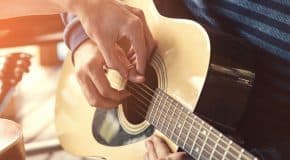Once lessons get rolling and you’ve started to make progress you might notice that progress slows down. I see it happen all the time with my students and in my own practicing. The good news is… this is a common problem and the solution is scaffolding.
Who hasn’t learned their first tune, a cool guitar riff, an awesome violin passage and just played it over and over for weeks? Why wouldn’t you? You’ve worked hard to get it down pat and get your muscle memory to adopt it. The only problem is, you are now just using muscle memory and have stopped practicing. I’ve been driving a car for about 15 years and don’t have to think about it anymore, I’m no longer “practicing “driving and my skills aren’t improving. The difference here is that, I have no need to improve my driving skills unlike my piano/guitar skills.

This is where scaffolding comes in. As students of music we always want to strive for skills just beyond our reach. We don’t want to start a beginning piano student with a book of Beethoven sonatas… that is currently unreachable. But, like in construction, we scaffold from one ability level to the next, and the path to that Beethoven sonata is illuminated.
The potential problem with this is we are never allowing ourselves to be satisfied; we are always reaching to the next challenge. This can cause frustration in many students. It is human nature to want to stick with something we do well. After all, challenging ourselves can feel uncomfortable. The trick is, is to love the stretch. The most accomplished musicians I know are the ones who describe themselves as “barely” being able to play their instrument. Don’t get me wrong, we should celebrate our accomplishments but these folks are always looking to the next level and challenging themselves to get there. SPOILER ALERT… there is always more to do, a new skill to master, a new piece to learn that is just a little harder then the one before. If a music student can learn to welcome and enjoy the challenge, then they are setup for a lifetime of success. HINT, HINT… this can be applied to life beyond music as well.
NOW GO PRACTICE 🙂


